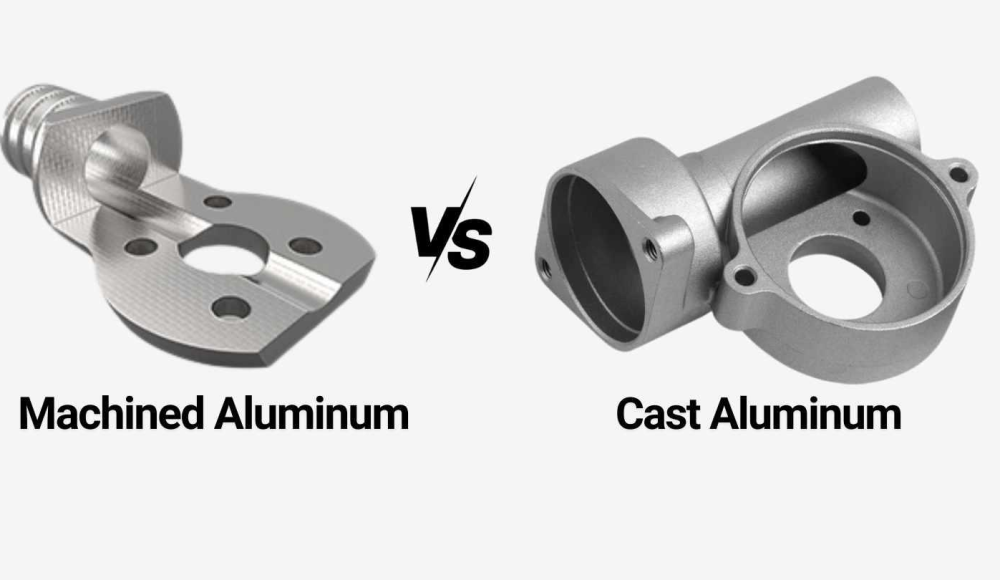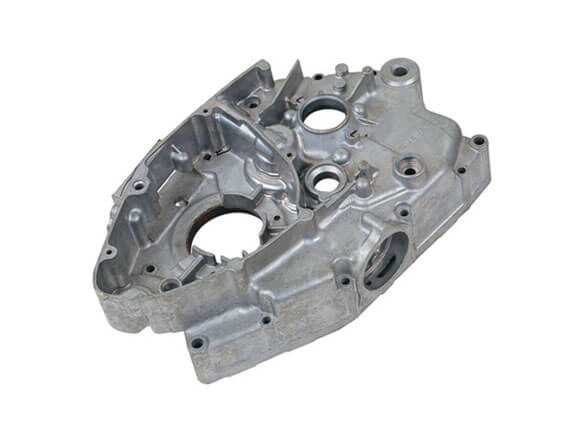The benefits of working with an expert Aluminum Casting Company
Wiki Article
Discovering the Role of Factory Solutions ahead of time Modern Engineering Solutions
Factory solutions are vital in shaping contemporary engineering services - Aluminum Foundry. They bridge the void between standard manufacturing strategies and the demands of contemporary industries. With advancements in automation and sustainability, shops are advancing to fulfill the needs of sectors such as aerospace and automobile. This improvement questions about the effects for materials, procedures, and future technologies. What difficulties and possibilities lie ahead for foundry services in this rapidly transforming landscape?The Advancement of Shop Services in Design

The assimilation of computer-aided design (CAD) and simulation software has changed the style and production procedures, making it possible for foundries to generate complicated geometries with higher accuracy. The change in the direction of eco-friendly techniques has led to the adoption of greener modern technologies and reusing initiatives within factories. As sectors increasingly prioritize customization and fast prototyping, factory solutions have expanded their capacities, ensuring they stay crucial contributors to the engineering landscape. This advancement highlights the shop's important function in sustaining advancements throughout different sectors, consisting of vehicle, aerospace, and energy.
Key Procedures and Methods in Modern Foundries
Modern shops use a variety of key procedures and strategies that enhance the efficiency and high quality of steel casting. Amongst these, sand spreading continues to be prevalent because of its adaptability and cost-effectiveness. The usage of innovative technologies, such as computer-aided design (CAD) and computer-aided production (WEBCAM), permits accurate modeling and production, ensuring high precision in part dimensions. In addition, investment casting is preferred for creating complicated geometries with outstanding surface finishes.In addition, automation and robotics boost production speed and consistency while decreasing labor prices. Strategies like additive production are increasingly incorporated to create detailed molds and cores, consequently reducing product waste. The application of thermal analysis aids in maximizing spreading procedures by predicting and regulating solidification habits. Collectively, these procedures and methods exemplify how modern shops are adjusting to satisfy the demands of contemporary engineering difficulties, making sure exceptional product quality and operational performance.
The Significance of Products Choice in Shop Providers
Choosing the ideal materials is important in foundry services, as it directly influences the mechanical buildings, resilience, and total performance of the end product. Various products have unique characteristics, such as tensile stamina, rust resistance, and thermal security, which must align with the designated application of the cast components. As an example, metals like light weight aluminum and steel are typically chosen for their strength-to-weight proportion, while alloys can enhance specific performance characteristics.Moreover, the option procedure includes thinking about factors such as manufacturability, cost, and accessibility, which can notably affect project timelines and budget plans. Additionally, advancements in material scientific research enable the advancement of cutting-edge composites and specialized alloys that deal with emerging engineering obstacles. A complete understanding of product homes and their implications is important for designers and shop experts to achieve successful results in their tasks. This mindful choice process ultimately improves the dependability and performance of completion products.
Factory Providers in Aerospace and Automotive Applications
Shop solutions play an essential duty in the aerospace and automotive sectors, where precision and efficiency are paramount. These markets count heavily on the manufacturing of facility parts that must fulfill extensive top quality criteria and stand up to extreme problems. Foundries supply vital services such as spreading, machining, and completing, guaranteeing parts are light-weight yet robust, vital for improving gas efficiency and security.In aerospace, foundry solutions add to the production of generator blades, engine components, and structural components, all of which demand high-performance products and intricate styles. In a similar way, in the vehicle sector, factories provide engine blocks, chassis components, and transmission cases, concentrating on sturdiness and weight reduction.
Advanced foundry methods, consisting of additive production and accuracy casting, are significantly used to meet the particular demands of these industries. By providing customized remedies, foundry services help drive innovation and keep competitive advantages in the fast-evolving aerospace and automobile landscapes.
Developments Driven by Foundry Capabilities
Many advancements in design are sustained by the sophisticated capacities of factory services. These services allow the production of complex geometries and high-performance materials that are essential for contemporary applications. As an see post example, additive production, frequently understood as 3D printing, has seen substantial improvements with shop methods, enabling the fast prototyping of intricate styles. Additionally, the capacity to cast light-weight alloys has revolutionized sectors such as aerospace and automobile, resulting in enhanced gas effectiveness and efficiency.Moreover, foundries are progressively integrating wise modern technologies, such as automation and data analytics, to enhance production performance and quality assurance. These advancements not only lower waste but additionally enable customization at range, meeting the specific demands of clients. By leveraging sophisticated shop abilities, engineers can discover brand-new frontiers in product design and functionality, ultimately driving progression across numerous markets and developing a structure for future developments.
Future Fads in Factory Solutions and Design Solutions
The future of factory solutions is formed by arising fads such as lasting manufacturing practices, which focus on environmental obligation. Automation and clever modern technologies are established to boost efficiency and precision, while enhancing modification and versatility will certainly satisfy the advancing demands of clients. As these trends evolve, they will certainly redefine the landscape of engineering remedies in the factory market.
Sustainable Production Practices
As industries progressively focus on environmental obligation, lasting production practices within shop services are becoming important to modern-day design options. These practices concentrate on reducing waste, decreasing power usage, and making use of green products throughout the manufacturing procedure. By executing methods such as reusing scrap metal and optimizing melting processes, foundries can notably reduce their carbon footprint. In addition, the fostering of life process assessments permits manufacturers to review the environmental influence of their items from inception to disposal. Teaming up with providers committed to sustainability even more enhances the performance of these initiatives. Inevitably, welcoming lasting production not only straightens with international environmental goals but also promotes development and competitiveness in the quickly evolving design landscape.Automation and Smart Technologies
While several markets are embracing technical advancements, factory services are experiencing a significant change through automation and smart modern technologies. The combination of robotics and automated systems enhances production performance, lowers human mistake, and speeds up the manufacturing process. Smart innovations, such as IoT and AI, enable real-time monitoring and predictive upkeep, which enhance functional performance and reduce downtime. These advancements promote data-driven decision-making, permitting shops to respond promptly to market demands and enhance product high quality. Furthermore, automation reduces labor expenses and enhances workplace security by taking care of hazardous jobs. As factory solutions continue to adopt next page these innovations, they are positioned to redefine design remedies, bring about increased competitiveness and sustainability in the production market.Personalization and Adaptability Fads
Arising fads in shop services increasingly highlight customization and flexibility to meet special customer needs. This change mirrors a wider need for customized design options that adapt to specific project needs and sector standards. Business are investing in advanced modern technologies, such as additive production and digital modeling, enabling them to produce personalized components efficiently and cost-effectively. Consequently, factories are relocating away from one-size-fits-all techniques, offering customers the ability to modify layouts and materials in real-time. Additionally, partnership between design groups and factory services is coming to be more incorporated, promoting technology and speeding up time-to-market. This fad not only enhances product performance but also sustains sustainability by lessening waste through precise production processes.Regularly Asked Questions
What Are the Common Expenses Connected With Factory Services?
Regular expenses connected with factory solutions consist of material expenses, labor fees, tools usage costs, and expenses expenses - aluminum casting. These costs can vary extensively based upon task complexity, quantity, and details demands of the design remedy entailedHow much time Does the Foundry Refine Typically Take?
The foundry process generally takes anywhere from numerous weeks to a few months, relying on aspects such as complexity, product requirements, and production volume, which can substantially affect timelines and general project delivery.What Industries Benefit Most From Factory Solutions?
Industries such as automobile, aerospace, and construction benefit substantially from foundry services. These sectors rely upon precision spreading and steel manufacture to produce link complicated components, boosting product efficiency and functional performance in their corresponding applications.What Certifications Should Factories Have?
Shops must possess certifications such as ISO 9001 for high quality administration, ISO 14001 for environmental management, and specific industry accreditations like AS9100 for aerospace or IATF 16949 for automotive, guaranteeing compliance and quality control.Just How Do Foundries Guarantee Quality Assurance in Their Processes?

Foundry services are important in forming modern design remedies. As design techniques have actually advanced, the role of factory solutions has actually changed considerably to meet advancing sector needs. As industries progressively focus on modification and fast prototyping, factory solutions have expanded their capacities, guaranteeing they stay crucial contributors to the engineering landscape. As markets significantly prioritize environmental duty, lasting production methods within shop services are becoming necessary to contemporary engineering remedies. In addition, partnership between engineering groups and factory solutions is coming to be a lot more incorporated, fostering development and accelerating time-to-market.
Report this wiki page